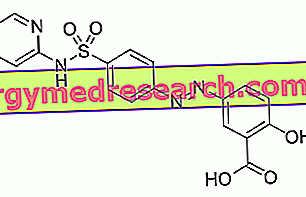Related articles: Hyperuricemia
Definition
Hyperuricemia is a high serum concentration of uric acid (> 7.0 mg / dl). This condition can be caused by an increased production of uric acid and / or insufficient renal elimination.
Uric acid is the end product of purine metabolism; it is formed in the human organism starting from endogenous purines (de novo synthesis) or exogenous (deriving from the diet). When uric acid concentrations exceed the solubility threshold and the physiological saturation point, this element tends to precipitate in the extracellular compartments as monosodium urate.
Various conditions such as plasma volume depletion, obesity and high metabolic turn-over states (tumor lysis syndrome, myeloproliferative disorders and hemolysis) can cause increased production of uric acid. This situation can also be attributed to enzymatic abnormalities (such as hypoxanthine-guanine phosphoribosyl-transferase deficiency or phosphoribosylpyrophosphate synthase hyperactivity) and can be seen as an alteration related to the metabolic syndrome.
Certain genetic pathologies are also characterized by the presence of hyperuricemia (with or without urate deposition), such as Lesch-Nyhan syndrome.
An increase in the serum level of uric acid can also be induced by some drugs (including diuretics, salicylates and cyclosporine used in transplanted patients), cytotoxic chemotherapy and radiotherapy. The increased intake of foods rich in purines (eg liver, kidney, anchovies, herring and mussels) can contribute to hyperuricemia.
The reduced renal excretion of uric acid may be hereditary or develop in patients with pathologies that reduce the glomerular filtration rate. Ethanol induces an increase in purine catabolism in the liver and an increase in the formation of lactic acid, which blocks the excretion of urates from the renal tubules.
Particularly high levels of serum uric acid are observed in subjects with lead intoxication.
Chronic hyperuricemia is a harmful condition for the body, as it is the pathogenetic basis for the development of monosodium urate deposits in various organs and tissues and the consequent cardiovascular, metabolic, renal and joint complications.
Possible Causes * of Hyperuricemia
- Anemia
- Arthritis
- Gouty Arthritis
- Kidney stones
- Gout
- Kidney failure
- Leukemia
- lymphoma
- Obesity
- Pre-eclampsia
- Psoriasis
- Metabolic syndrome



